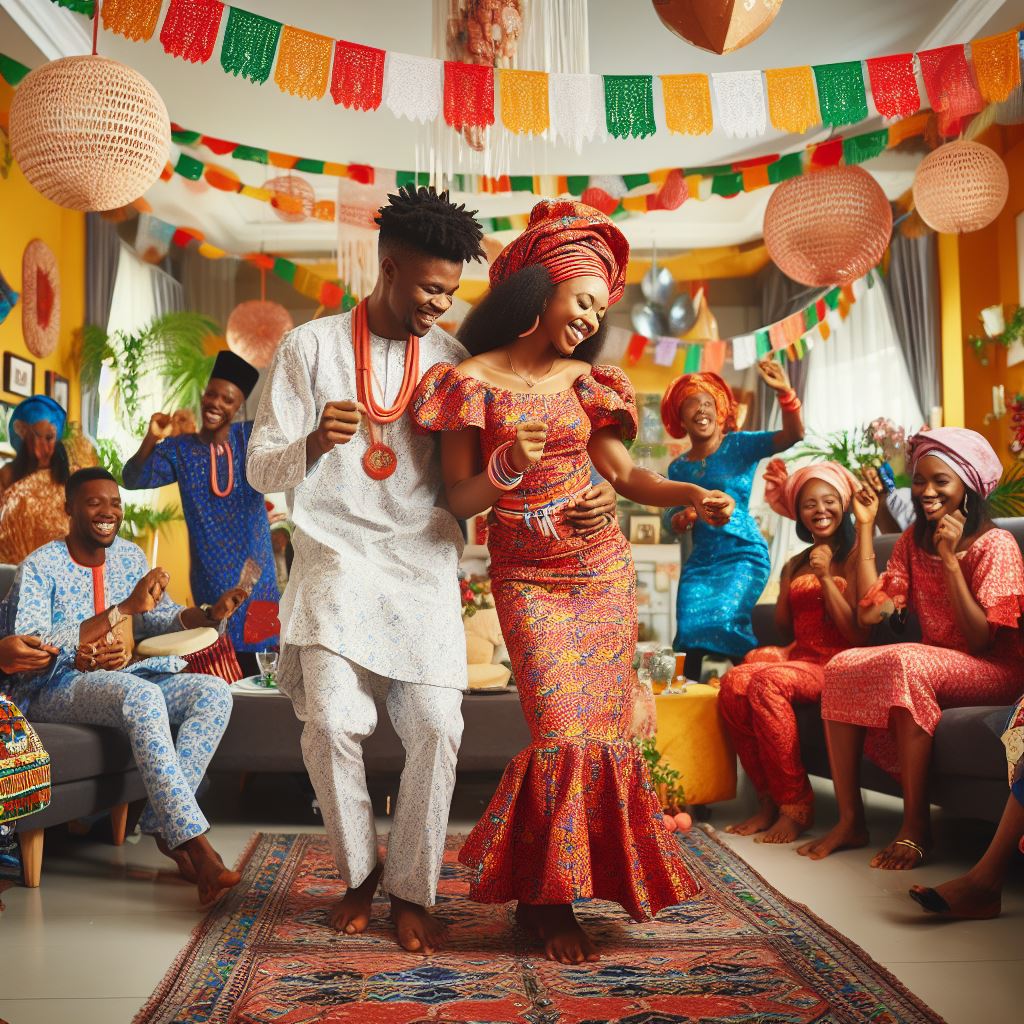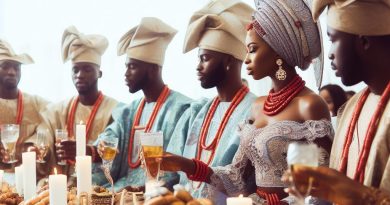Difference Between Traditional, Religious, & Registry Marriages in Nigeria
Last Updated on October 13, 2023
Introduction
Importance of marriage in Nigerian culture
Traditional, Religious, Registry Marriages are the things to be discussed in this article.
In Nigerian culture, marriage plays a vital role as it serves as a cornerstone for societal cohesion, family growth, and the continuation of cultural traditions.
It provides individuals with a sense of identity, belonging, and responsibility. Marriage ceremonies in Nigeria are truly grand affairs, showcasing the rich cultural heritage and diversity of the country.
Nigerian traditional marriages reflect age-old customs and distinct ethnic traditions.
These ceremonies are colorful, vibrant, and filled with rituals that symbolize unity, respect, and blessings.
They typically involve the exchange of gifts, payments of dowries, and the involvement of extended family members.
Religious leaders officiate weddings in Nigeria, predominantly Christian and Islamic, in churches or mosques. They include religious rites and prayers.
The couple commits to each other in the presence of their religious community.
Read: The Essence of Marriage in Traditional Nigerian Cultures
Traditional Marriages in Nigeria
Importance of marriage in Nigerian culture
Traditional marriages in Nigeria hold a special place in the hearts of the people. These ceremonies not only unite two individuals but also symbolize the merging of two families and communities.
Description of traditional marriage customs
Customs and traditions associated with traditional marriages differ among the numerous ethnic groups in Nigeria, such as the Yoruba, Igbo, Hausa, and many others.
Each group has its unique customs, attire, and rituals that make their traditional weddings distinct and memorable.
Importance of family involvement and negotiations
In Nigerian culture, family is highly valued, and this is reflected in the significance of family involvement and negotiations during traditional marriages.
The families of the prospective bride and groom play a crucial role in the entire marriage process.
Prior to the wedding ceremony, the families engage in negotiations known as the ‘Introduction Ceremony.’
This ceremony facilitates the formal introduction of the groom’s family to the bride’s family and usually involves the exchange of gifts, dowry discussions, and the demonstration of respect and gratitude.
The traditional wedding ceremony bursts with vibrant colors, music, dance, and cultural performances, creating a grand event.
It typically takes place according to the customs and traditions of the respective ethnic group involved.
During the ceremony, the bride and groom dress in traditional attire, representing their cultural heritage.
In traditional ceremonies, the bride wears intricate jewelry and a traditional headpiece, while the groom dons robes symbolizing his tribe and status.
Role of Traditional Wedding Ceremonies
A significant aspect of traditional Nigerian weddings is the presence of communal participation.
Family members, friends, and community members actively contribute to the success of the ceremony by offering support, providing financial assistance, and participating in various roles and responsibilities.
Challenges and criticisms of traditional marriages
Despite the cultural significance and beauty associated with traditional marriages in Nigeria, there are certain challenges and criticisms surrounding them.
Critics often criticize the high cost of traditional weddings, which can strain families financially.
Additionally, the involvement of extended family members in decision-making processes can sometimes lead to conflicts and disagreements.
Some argue that traditional ceremonies can perpetuate gender inequalities and reinforce traditional gender roles.
Nevertheless, traditional marriages continue to thrive in Nigeria, as they play a crucial role in preserving cultural heritage and strengthening family ties.
These ceremonies serve as a source of joy, celebration, and a means of passing on cultural traditions from one generation to another.
Traditional marriages in Nigeria hold immense cultural significance and serve as a platform for celebrating love, family, and community.
Despite facing criticism, people cherish and value these ceremonies for their uniqueness and their ability to bring people together.
Read: Marriage in Nigeria: Between Love and Tradition
Religious Marriages in Nigeria
Introduction to the major religions in Nigeria
- Nigeria is a country with a diverse religious landscape.
- The major religions in Nigeria include Islam, Christianity, and traditional indigenous religions.
- Islam and Christianity are the dominant religions, each with a significant number of followers.
Religious significance of marriage in Islam, Christianity, and other religions
- Marriage holds great religious significance in Islam, Christianity, and other religions in Nigeria.
- In Islam, marriage is considered a sacred covenant and an important social institution.
- Christianity views marriage as a union blessed by God, symbolizing the relationship between Christ and the Church.
- Other religions in Nigeria also emphasize the importance of marriage in their respective teachings.
Requirements and rituals involved in religious marriages
- Religious marriages in Nigeria involve specific requirements and rituals.
- In Islamic marriages, the consent of both the bride and groom, as well as the presence of witnesses, is required.
- Christian marriages often involve pre-marital counseling, exchange of vows, and the blessing of the couple by a priest or pastor.
- Traditional rituals, such as the payment of dowry and traditional blessings, are also common in religious marriages.
Comparison of marriage customs across religions
- While there are similarities, each religion has its unique customs surrounding marriage.
- In Islam, polygamy is allowed, although it is less common in Nigeria in recent times.
- Christianity promotes monogamy and emphasizes the importance of fidelity and commitment.
- Traditional indigenous religions often have their own cultural practices and beliefs regarding marriage.
Legal recognition of religious marriages
- Religious marriages are recognized as legally binding in Nigeria.
- Marriage certificates issued by religious institutions hold legal validity.
- However, there is an option for couples to also have a civil marriage for additional legal protection.
Controversies and issues related to religious marriages
- There have been controversies surrounding underage marriages in some religious communities.
- The issue of divorce and its recognition within religious institutions is also a topic of debate.
- Interfaith marriages, especially between Muslims and Christians, can face societal and family tensions.
- Religious practices and beliefs sometimes clash with modern societal expectations and evolving gender roles.
Religious marriages in Nigeria play a central role in the lives of individuals and communities.
While each religion has its unique customs and traditions, the significance of marriage is universally recognized.
Legal recognition and the controversies surrounding religious marriages highlight the ongoing discussions about the intersection of religious and civil laws in Nigeria.
Read: Biblical Foundations: Building Strong Marriages in Faith

Registry Marriages in Nigeria
Explanation of registry marriage as a legally binding marriage option
Registry marriage refers to a legally recognized and binding marriage performed at a government registry office. It is often preferred by couples who desire a simple and efficient process.
History and development of registry marriages in Nigeria
Registry marriages in Nigeria can be traced back to the colonial era when the British introduced the concept. Over time, it gained popularity and became a widely accepted form of marriage.
Process of obtaining a marriage certificate from the registry
To obtain a marriage certificate, couples must visit the registry office, provide necessary documents, such as birth certificates and identification cards, and pay the required fees.
The registry then schedules a date for the marriage ceremony.
Advantages and disadvantages of registry marriages
Registry marriages offer several advantages, including simplicity, cost-effectiveness, and legal recognition. However, they are often criticized for lacking cultural and religious significance.
Legal rights and protections provided by registry marriages
Registry marriages grant couples legal rights, such as inheritance, property ownership, and access to spousal benefits. They also provide legal protection in case of divorce or dispute.
Comparison of registry marriages with traditional and religious marriages
Unlike traditional and religious marriages, registry marriages do not involve elaborate ceremonies or cultural rituals.
They focus solely on legal requirements, making them a practical choice for those prioritizing legal validity over cultural traditions.
Read: The Song of Solomon: Exploring Love and Marriage
Conclusion
Recap of the differences between traditional, religious, and registry marriages in Nigeria.
Nigerian traditional marriages follow cultural practices and customs.Religious marriages adhere to specific religious beliefs and rites.
Registry marriages are civil ceremonies at the marriage registry.
Reflection on the significance of understanding these differences.
It is important to understand the differences between traditional, religious, and registry marriages in Nigeria to appreciate the diverse cultural and religious practices in the country.
This understanding promotes tolerance and respect of different beliefs and traditions.
Final thoughts on the evolving nature of marriages in Nigeria. Marriage in Nigeria is evolving, with couples now having more options to choose from when it comes to the type of marriage they want.
The recognition of registry marriages as legally binding has given couples more flexibility and freedom to celebrate their union.


